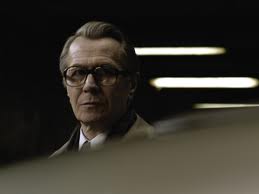 A Dangerous Method
A Dangerous Method
After re-inventing himself with the gritty crime fare of A History of Violence (2005) and Eastern Promises (2007), director David Cronenberg turns in a suprisingly disapponting follow-up with A Dangerous Method, a limp and uninteresting historic drama that would thrive on — but is completely lacking — the psychosexual tension that usual permeates Cronenberg’s work.
The movie centers on a particular period of strife between Drs. Carl Jung (Michael Fassbender) and Sigmund Freud (Viggo Mortensen) during the turn of the 20th century, brought about by a case that brought the two together and eventually tore them apart. Adapted by Christopher Hampton from his play The Talking Cure, it focuses on the two pioneers and their patient Sabina Spielrein (Keira Knightley), plagued by fits of hysterics as well as some deep-seated sexual dysfunction.
Even though they both believe in the budding (and then-controversial) science of psychotherapy, Freud and Jung are at odds over technique (the former is more rational, the latter more spiritual). Complicating matters are Jung’s extramarital affairs (including some with patients, one of them Sabina), Freud’s feelings of professional jealousy and inferiority, and a suicidal patient (Vincent Cassel) whom both are trying to help.
Granted, Cronenberg has mellowed just a tad in his old age, so it would be unfair to expect Crash mixed with The Age of Innocence, but it’s nevertheless disappointing to see a director so well known for skillfully exploring aberrant sexuality and the psychology behind it take a milquetoast approach to what could have been a daring, intelligent film. Instead, we get something cold, distant, unarousing, and unchallenging. Seriously, there are episodes of Masterpiece Theatre that are bolder than this.
That wouldn’t be such a big deal, however, if there were more to propel the narrative — like, oh, a story. Cronenberg’s approach is dialogue-heavy — great for an idea-driven film about two thinking men obsessed with plumbing the depths of the human psyche — but the plot is bare bones. We’re asked to be casual observers as emotionally distant characters interact for 99 minutes.
Fassbender and Mortensen give fascinating and nuanced performances as duelling psychoanalyst frenemies, but they are unfortunately undermined by Knightley’s hammy histrionics and ridiculous over-acting. She literally gnashes her teeth and bugs her eyes out in a one-note, campy portrayal of insanity that seems meant for an entirely different movie one almost feels embarassed for her, and in the scenes where Fassbender is required to spank her, you half-suspect that it has more to do with frustration than eroticism.
Tinker, Tailor, Soldier, Spy
An engaging throwback to the cynical Cold War espionage movies and paranoia thrillers of the 1970s, Tinker, Tailor, Soldier, Spy plays like a time capsule of an era when civilization seemed pertually on the brink of annihilation, good vs. evil was painted in shades of gray, and high-tech surveillance in the pre-digital age meant sneaking into a house to tap a phone and having a really good pair of binoculars. Tomas Alfredson (Let the Right One In), though forced to trim a complex story down to a two-hour runtime, delivers a compelling — though often murky — adaptation of John Le Carre’s classic novel, anchored by a stellar cast.
As the movie opens in 1973, the head of Britain’s Special Intelligence Service, “Control” (John Hurt), is forced into retirement after a botched, unapproved operation in Budapest leaves an agent (Mark Strong) dead. His righthand man, George Smiley (Gary Oldman), is swept out with him. A cabal of second-tier handlers — supercilious Percy Alleline (Tobey Jones), acerbic Roy Bland (Ciaran Hinds), skirt-chasing Bill Haydon (Colin Firth), and lap dog Toby Esterhase (David Dencik) — take control of the Service by riding a wave of intelligence fed to them by “Witchcraft”, a supposedly high-ranking operative working within Soviet intelligence.
Control passes away and a young agent named Ricki Tarr (Tom Hardy) comes in from the cold with a startling tidbit of info: Control believed there was a Soviet mole in the SIS, and that suspicion is a fact. A minister pulls Smiley from retirement to uncover the double agent, and the veteran agent recruits a squad of other cast-off agents to assist him. The cat-and-mouse game that follows plays like a case study in the varying degrees of moral relatavism.
This version’s condensed form (127 minutes, whereas the previous 1979 television miniseries version ran six one-hour episodes), there is a loss of detail; viewers familiar with the book or the miniseries can fill in the blanks as needed, but newcomers will be able to infer some elements but will no doubt have questions after the credits roll.
The lifebreath of both the novel and its screen counterparts is, of course, Le Carre’s iconic main character. When the novel was adapted for television, it was faithful to the source material (almost to a fault) and lifted into cult status by Sir Alec Guinness’ performance as Smiley. It was one of is best, though overshadowed at the time by his role as a certain Jedi knight. Oldman’s embodiment of him is every bit as disarming and pitiable as Guinness’, and at times his voice and delivery are strikingly similar to Sir Alec’s. Oldman, however, embues the character with a harder edge tempered by a disarming stillness, a dangerous man hiding in plain sight. It’s an astute portrait of a spent man willing himself back to life while wading through a morass of betrayal and distrust, as well as a quite performance that speaks volumes.






